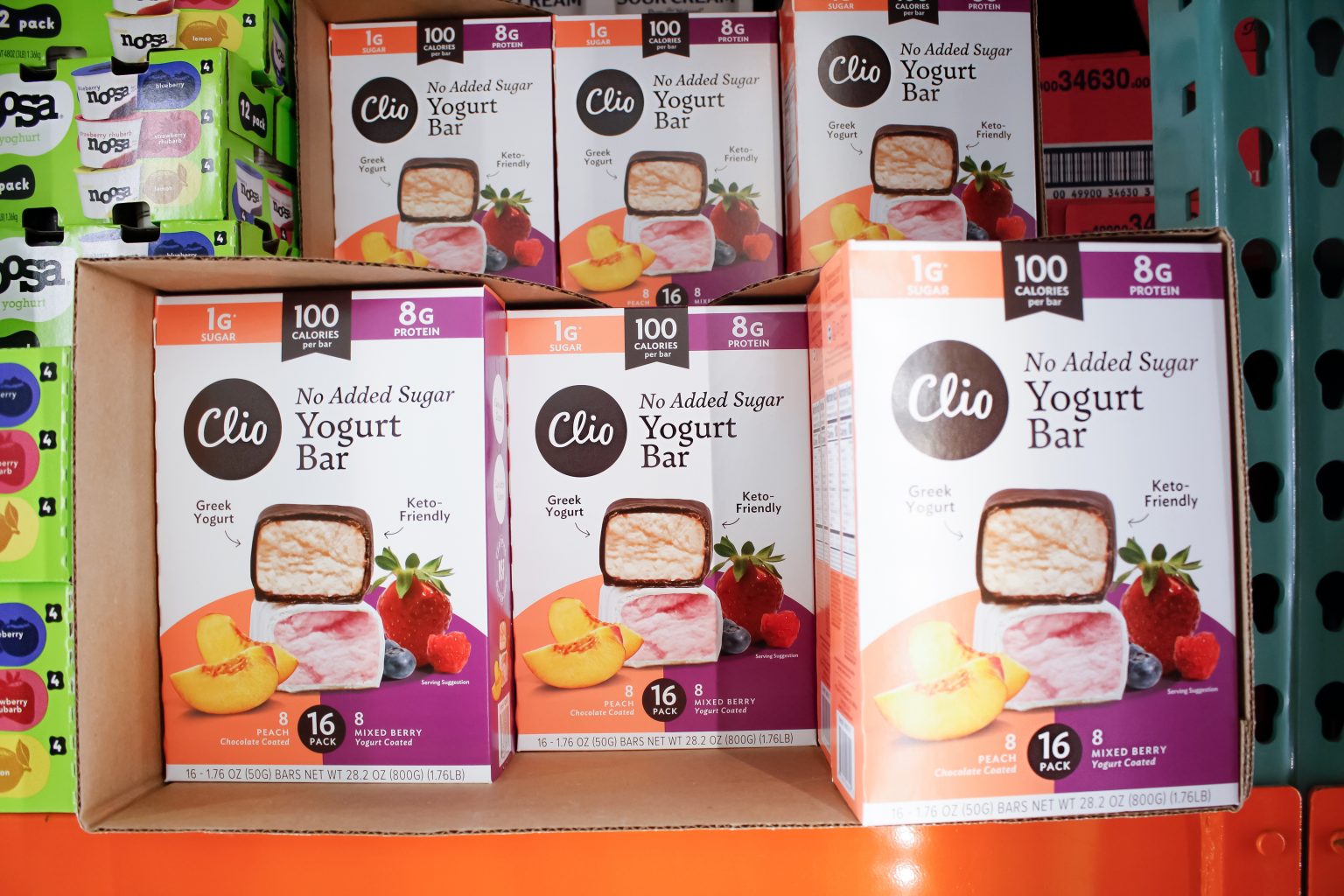CEO John McGuckin said the snack maker’s sales could reach $500 million as it increases household penetration and persuades retailers to stock more of its products.
With Clio’s refrigerated bar posting an annual compound growth rate of 50%, CEO John McGuckin could be forgiven for feeling optimistic. However, the former Sabra hummus executive is not resting on his laurels.
“The product was always ahead of its time,” McGuckin said in an interview discussing the chocolate-covered yogurt bar. “Even though we’ve had some remarkable success, there’s a long way to go” to build awareness and market penetration.
Clio Snacks was founded in 2013 by former accountant and budding entrepreneur Sergey Konchakovskiy. He was inspired by the idea of encouraging his children to eat more nutritious foods. After noticing their interest in a batch of strained Greek yogurt in the fridge, Konchakovskiy had the idea to coat it with chocolate.
More than a decade later, the bar is thriving. Sales this year are projected at $60 million, up from $9 million in 2019. McGuckin is confident that Clio could eventually approach $500 million if the company can significantly increase consumption and household penetration.
Clio appeals to consumers because of its better-for-you ethos, which includes the benefits of Greek yogurt, such as protein and probiotics, as well as the convenience that makes it an easy snack, he said.
CEO John McGuckin of refrigerated bar maker Clio Snacks Permission granted by Clio Snacks
These qualities have made the product popular with a wide range of retailers, from Walmart and Whole Foods to BJ’s Wholesale and natural food outlets. Clio has recently focused on food service and convenience stores as growth channels.
A major challenge for Clio was that retailers were uncertain where to place its products. Some stores categorised it under the $10 billion yogurt category, others with refrigerated bars, and some in desserts.
“That was a big challenge for us because our consumers did not have a destination in mind when they went to the store,” said McGuckin, who took on the CEO role in October 2021. This unpredictability meant Clio had to rely on consumers discovering it by chance while shopping.
To address this issue, Clio analysed the market share and distribution of Mondelēz International’s Perfect Bar, another refrigerated bar offering. Clio’s executives noticed that Perfect Bar had established a niche between yogurts and desserts. Clio decided to further develop and eventually dominate that category. “We’re having some success,” McGuckin noted. “But it’s still early.”
The refrigerated bar category has nearly doubled in size over the past two-and-a-half years to just under $200 million, according to Spins data provided by Clio.
The category is growing at 15% annually, with Clio growing at three times that rate. As a result, McGuckin said Clio is attracting consumers to refrigerated bars and drawing people away from shelf-stable aisles in the store. In May, it surpassed Perfect Bar in monthly sales for the first time.
Clio still faces several challenges. Its household penetration currently stands at 2%. Supermarkets carry, on average, only two of its products, compared to six to eight at most Walmart and Whole Foods locations. To build scale and expand the category between yogurts and desserts, McGuckin said Clio needs to persuade grocers to carry between four and six items.
The New Jersey company has expanded its product line to include multipacks, which are suitable for retail and generate more revenue.
Clio also recently introduced a bar that replaced the chocolate coating with plain yogurt in strawberry, banana, or mixed berry flavours. This appealed to consumers who don’t see chocolate as suitable for breakfast, McGuckin noted, while helping Clio grow morning snacking occasions and expanding the market for children and those who dislike chocolate.
Clio has no plans to venture outside of bars in the near future. It is considering adding granola or another type of crunch to its products or rolling out more bite-sized offerings for children. The only non-bar item McGuckin hinted at was the possibility of a drinkable smoothie.
“The results speak for themselves. We’ve grown a tremendous number of doors in the last two years,” McGuckin said. “People are beginning to see the opportunity. But I think we’re still limited as a growing company with the extent to what the potential represents. And I think that’s just a matter of building awareness.”

